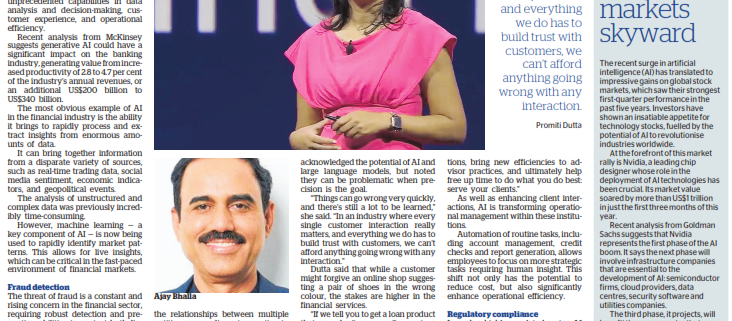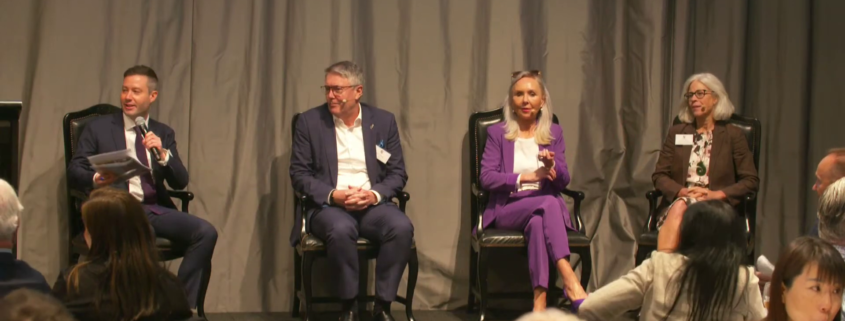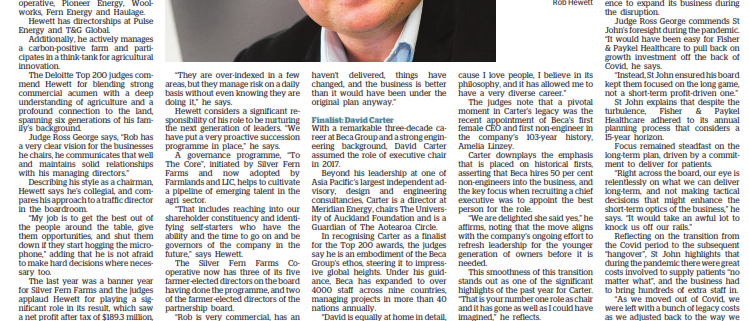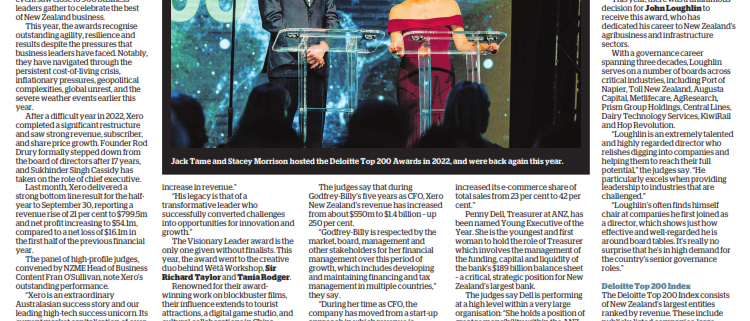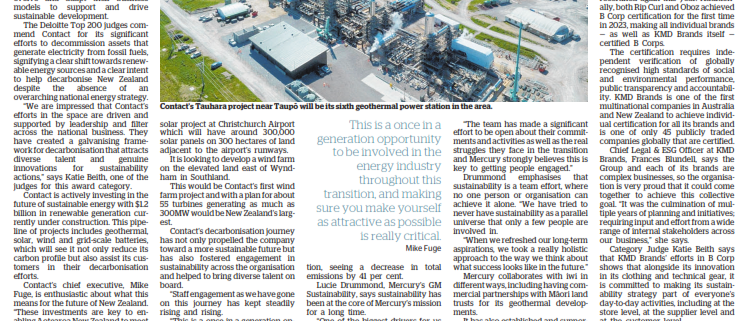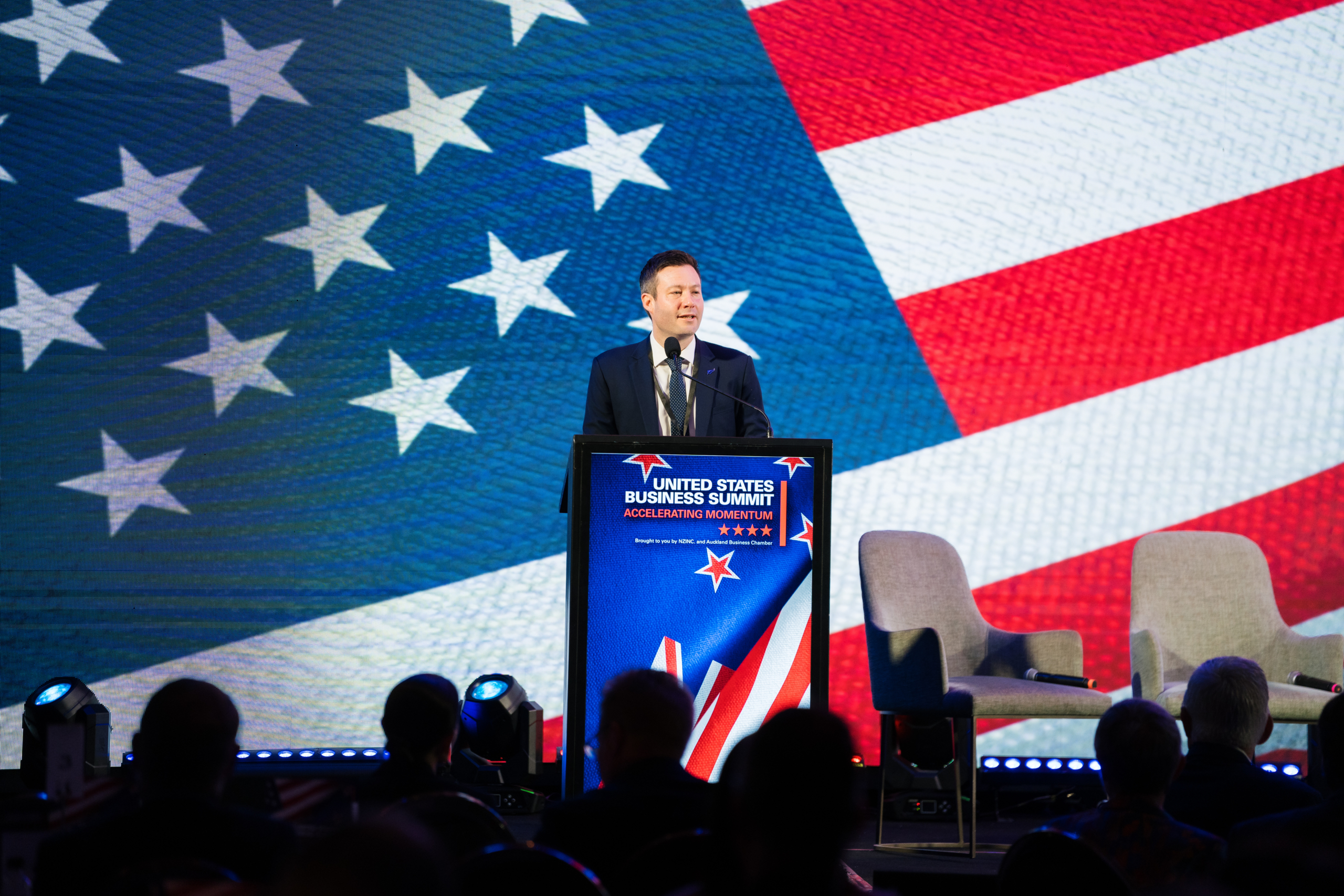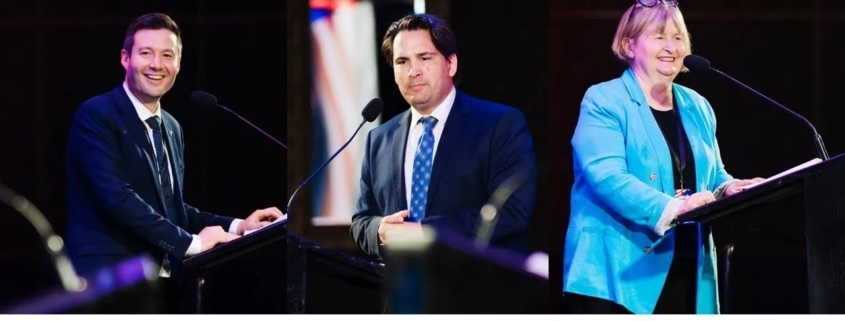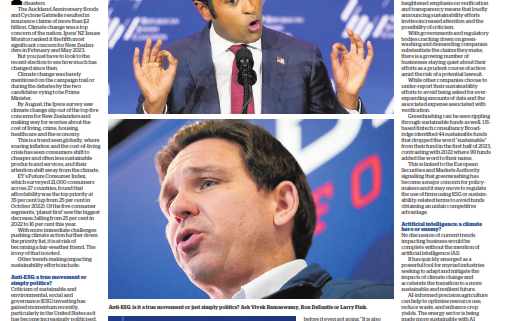Capital Markets Report: How artificial intelligence is being used to detect fraud, find sharemarket patterns and act as virtual assistants
Capital Markets Report: How artificial intelligence is being used to detect fraud, find sharemarket patterns and act as virtual assistants
The pace of artificial intelligence (AI) innovation has been remarkable, as has been the speed with which businesses are adopting it.
AI’s impact is evident in virtually every sector, including capital markets and financial services, where it is being used in data analysis and decision-making, customer experience, and operational efficiency.
Recent analysis from McKinsey suggests generative AI could have a significant impact on the banking industry, generating value from increased productivity of 2.8 to 4.7 per cent of the industry’s annual revenues, or an additional US$200 billion ($325b) to US$340b.
In the financial industry, AI is able to rapidly process and extract insights from enormous amounts of data.
It can bring together information from a variety of sources, such as real-time trading data, social media, economic indicators, and geopolitical events.
The analysis of unstructured and complex data was previously time-consuming.
However, machine learning – a key component of AI – is now being used to rapidly identify market patterns. This allows for live insights, which can be critical in financial markets.
Fraud detection
The threat of fraud is a constant concern in the financial sector, requiring detection and prevention abilities to protect both firms and their clients.
Given AI’s ability to identify patterns and anomalies in data, it can process vast amounts of transactions and spot potential fraud with greater speed and accuracy. The ability to process data in real-time is critical in mitigating losses and preventing fraudulent transactions from being completed.
Since AI systems can learn and adapt continuously from historical data, fraud detection capabilities are able to improve over time, identifying new fraudulent tactics as they emerge. This also helps to prevent false positives of legitimate transactions, minimising customer inconvenience.
Later this year, Mastercard will launch its generative AI model that will help banks improve their assessment of transactions. Mastercard says its AI enhancement, which assesses the relationships between multiple entities surrounding a transaction to determine its risk, will boost fraud detection rates on average by 20 per cent and as high as 300 per cent in some instances.
“The precision of the solution – achieved by scanning potential points of sale in real time – has been shown in our own analysis to not only increase accuracy, but also reduce the number of false positives by more than 85 per cent,” says Mastercard’s president of cyber and intelligence, Ajay Bhalla.
Virtual assistance
AI-powered virtual assistants provide the ability to offer 24/7 support, handling inquiries with levels of efficiency that were previously impossible.
This is being used to a varying extent by different organisations in the finance sector, but the highly regulated nature of the industry necessitates cautious implementation.
Speaking at a recent AI summit, Promiti Dutta, Citi’s head of analytics acknowledged the potential of AI and large language models, but noted they can be problematic when precision is the goal.
“Things can go wrong very quickly, and there’s still a lot to be learned,” she said. “In an industry where every single customer interaction really matters, and everything we do has to build trust with customers, we can’t afford anything going wrong with any interaction.”
Dutta said that while a customer might forgive an online shop suggesting a pair of shoes in the wrong colour, the stakes are higher in the financial services.
“If we tell you to get a loan product that you don’t necessarily want or need, you lose a little bit of interest in us because you think ‘Oh, my bank really doesn’t understand who I am’.”
She says that Citi is starting conservatively, and making sure there is always a human in the loop for anything assisted to learn what it is doing – and what it is not doing.
Less risky is the use of virtual assistance internally within firms. Last year, investment bank Morgan Stanley launched its own AI assistant to enhance the efficiency and effectiveness of its financial advisers and support staff.
The assistant, developed in collaboration with ChatGPT founder Open AI, provides access to the firm’s internal knowledge database of around 100,000 research reports and documents. It allows users to find and tailor information for clients almost instantaneously.
Morgan Stanley co-president Andy Saperstein told staff that generative AI will “revolutionise client interactions, bring new efficiencies to adviser practices, and ultimately help free up time to do what you do best: serve your clients”.
As well as enhancing client interactions, AI is transforming operational management within these institutions.
Automation of routine tasks, including account management, credit checks and report generation, allows employees to focus on more strategic tasks requiring human insight. This shift not only has the potential to reduce cost, but also enhance efficiency.
Regulatory compliance
In such a highly regulated sector, AI is helping to automate regulatory compliance processes and ensure adherence to rules and regulations. AI-powered systems can also help to eliminate manual errors and reduce the risk of non-compliance.
One example is Citigroup’s response to United States federal regulators’ new capital rules. The investment bank used AI to dissect a 1089-page document to analyse the text and articulate the implications of the changes for the bank’s leadership.
Looking ahead, regulation of AI itself is an area to watch. The financial sector must prepare for a wave of legislation, codes of conduct and guidelines – some of which is already occurring. While the benefits of AI are evident, it has the potential to exacerbate existing risks and introduce new ones.
Firms will have to consider AI within existing compliance frameworks to ensure that as they embrace the advantages of AI, they remain vigilant of its possible pitfalls.
AI driving global stock markets skyward
The recent surge in AI has translated to impressive gains on global stock markets, which saw their strongest first-quarter performance in the past five years. Investors have shown an insatiable appetite for technology stocks, fuelled by the potential of AI to revolutionise industries worldwide.
At the forefront of this market rally is Nvidia, a leading chip designer whose role in the deployment of AI technologies has been crucial. Its market value soared by more than US$1 trillion in just the first three months of this year.
Recent analysis from Goldman Sachs suggests that Nvidia represents the first phase of the AI boom. It says the next phase will involve infrastructure companies that are essential to the development of AI: semiconductor firms, cloud providers, data centres, security software and utilities companies.
The third phase, it projects, will benefit those companies that can enhance their revenues from the adoption and monetisation of AI technologies.
“Software and IT services seem best positioned for this phase of the AI adoption cycle, with many companies describing how their tools will enable other companies to utilise AI,” Goldman Sachs says.
The fourth phase will favour those companies that achieve significant productivity improvement through the adoption and integration of sophisticated AI.
“Software and services and commercial and professional services have the largest potential earnings boost from widespread AI adoption via labour productivity,” Goldman Sachs says. “These three industries have a combination of a high share of their wage bill exposed to AI automation and relatively high labour costs.”

